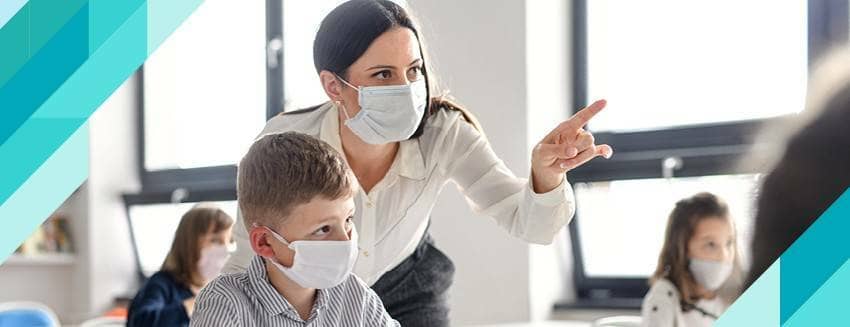
With the start of face-to-face education, the importance of the use of masks in children has once again come to the agenda. Stating that the use of masks should be explained to children by parents, experts point out that taking precautions reduces anxiety.
Experts pointing out that facial expression may not be understood correctly due to the mask, advise teachers to express their emotions by speaking more.
Mine Elagöz Yüksel, Child Adolescent Psychiatry Specialist at Üsküdar University NP Etiler Medical Center, made evaluations on the use of masks by children who start face-to-face education.
We should help them gain new habits
Stating that we are going through an unprecedented period for children as well as adults, Dr. Mine Elagöz Yüksel said, "We expect children to change their habits. We should not forget how important their habits are for children. Therefore, during this period of change, we should help them gain new habits and reduce their anxiety by creating new routines. One of these new habits is wearing a mask outside the home. Since it is difficult for children to comply with social distancing, wearing a mask becomes more important. But their parents are perhaps more worried about their children wearing masks than them. The concerns of the families consist of possibilities such as the possibility that children will be scared by seeing everyone in masks."
It must be discussed with the child
Emphasizing that no matter what age the child is, he/she should be talked to about why he/she wears a mask, Dr. Mine Elagöz Yüksel said, "In this way, it should be stated that both he/she will be safe and that it will help his/her other friends to feel safe."
If parents are calm, anxiety decreases
Dr. Mine Elagöz Yüksel noted that it should be kept in mind that children can also learn fear from their parents, so their anxiety will decrease as they see them calm, "However, the environment of friends is very important for children and we often see that they learn many things from each other. Seeing all their friends in masks will make them feel that this is normal and not a personal situation. Ensuring that the mask set is organized and that this rule is not broken frequently will also reduce children's objections."
Taking precautions helps reduce anxiety
Stating that wearing a mask or taking different precautions actually creates a feeling of "controllability" over the process as a method of protection during the epidemic period when control is reduced, thus helping to reduce worries, Dr. Mine Elagöz Yüksel said, "For this reason, showing children that there is something they can do and explaining it with reasons causes them to remain calmer."
They feel wearing a mask as being part of the whole
Pointing out the importance of setting an example for the child in using masks, Yüksel said, "When a child sees that his/her parents, acquaintances or strangers are wearing masks, he/she feels that he/she is part of a whole and that he/she can also do it."
They can adopt masks with pictures more
Prof. Dr. Mine Elagöz Yüksel said, "Patterned, pictorial masks, masks with written, message content for older children lead them to adopt the mask more easily. In addition, the fact that the mask does not cause discomfort, that it is made of a fabric that the child is comfortable in, and that its size is suitable for the face also facilitates the process."
Teachers should talk more about their feelings
Stating that it is possible for very young children to be frightened when they see a masked person, Dr. Mine Elagöz Yüksel said, "This is mostly due to the fact that they have difficulty reading the facial expressions behind the mask. For this reason, it would be useful for teachers, for example, who work with young children in masks, to use more bodily expression, to tone their voices in a way that reflects their emotions more, and to use words to express their emotions, that is, to talk more about their emotions."
It should be explained why the mask is a necessity
Dr. Mine Elagöz Yüksel noted that it is right and important for the child to introduce the mask in the home environment, to learn what it will do and why he/she has to wear it from the parents he/she trusts the most:
"The child should be encouraged with positive discourses during the time he/she can wear his/her mask. For example, a mask can be used in games at home to familiarize the child with the mask. The ce-e game played by wearing a mask or a mask to be worn on a stuffed animal / doll will increase acceptance for young children. Especially when older children do not want to wear a mask, it should be tried to understand whether there is a reason behind this. For example, the child may think that he/she is not getting enough oxygen or that the mask increases his/her acne. In this case, they should be listened to and correct explanations should be given for their wrong thoughts. It is also a fact that children tend to follow the rules, especially at a young age, and adapt more easily than adults in many matters."








